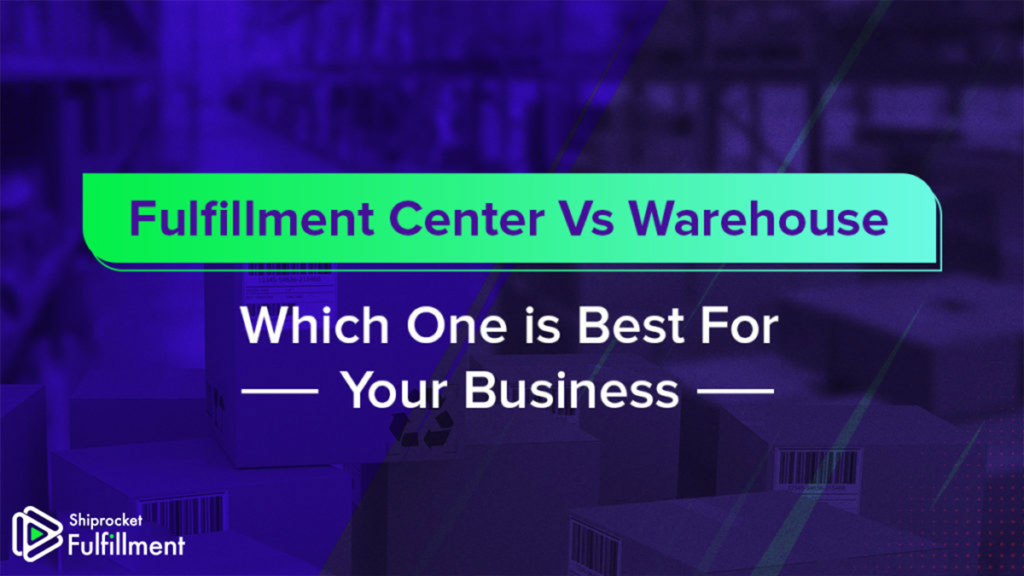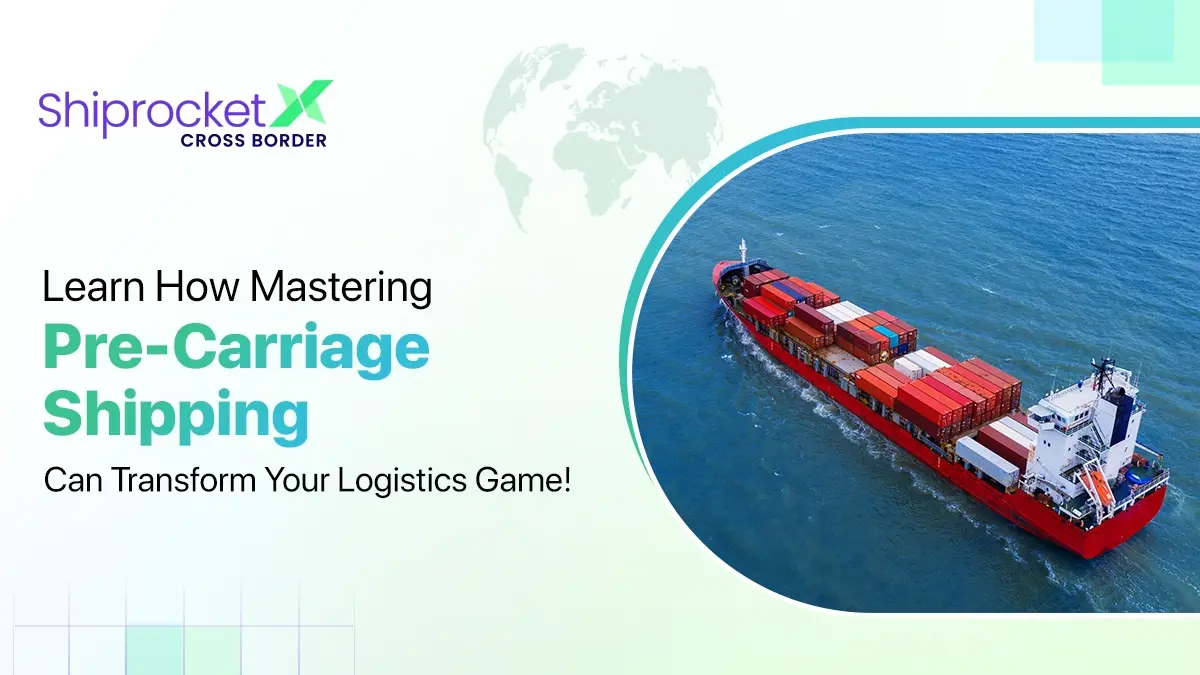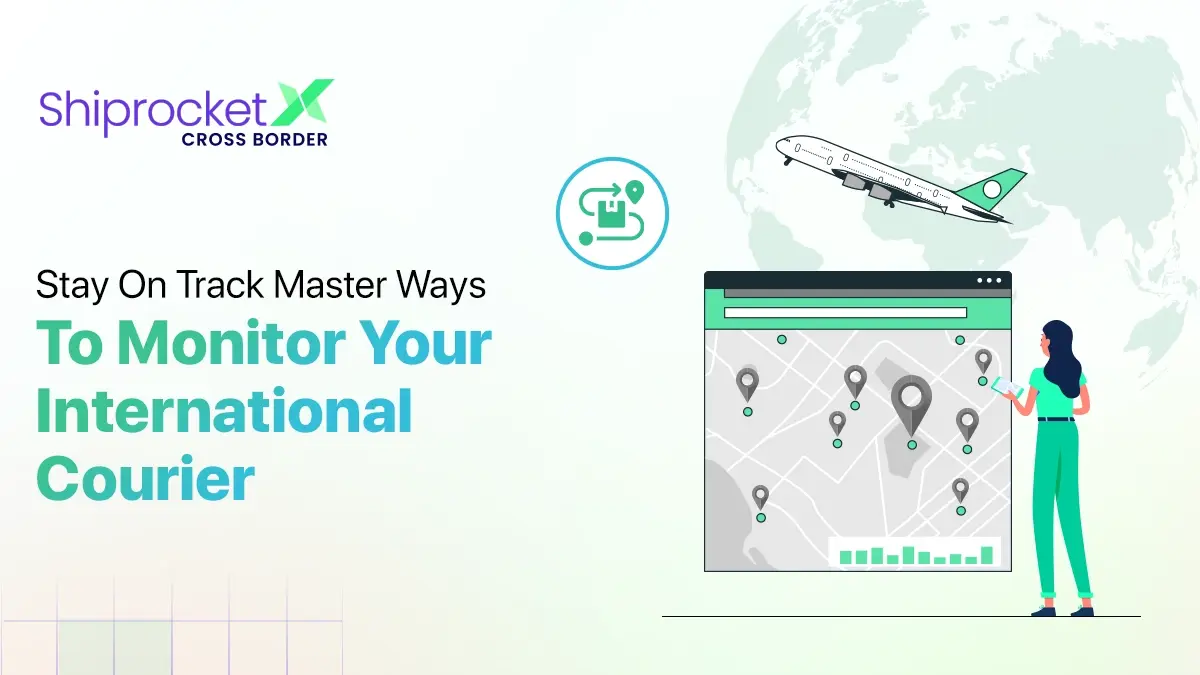Fulfillment Center or Warehouse? Choose the Right One for Your Business
Fulfillment Center and Warehouse are often used interchangeably, but in reality, both have different functions. They are large buildings that hold inventory for businesses. However, their features and services are quite different. The services that each provides vary depending on the business needs. This blog explores the functions of both the fulfillment center and warehouse for you to decide which is most suitable for your eCommerce business.

What are Warehouses? When are they needed?
A warehouse is a building where goods and products are stored for a long period of time. It is a place designed to store the inventory of business in bulk quantity until it is needed. A warehouse is equipped with high shelves stacked with many goods, forklifts driving around, and containers moving across the building. Operationally, what happens in a warehouse is a stagnant job. Inventory is added, moved to various locations, and short periods of time before the product is shipped out, unlike warehouses where products are eventually transferred out of the warehouse when needed.
Companies that take care of warehousing solely are seen focusing more on businesses that work with wholesale or business-to-business orders that deal with large quantities of products. More substantial companies & retailers have their own warehouses where they can store their extra products, or they rent warehouses to share with other businesses. Typically, it is a cost-effective idea for small and medium-sized businesses to lease warehouse space, depending on the terms of the leases.
In case you are looking to store your business’s extra inventory until they’re in demand or small storage spaces are not working out for you, a warehouse is what your business needs.
What are Fulfillment Centers? When are they needed?
Similar to a warehouse, a fulfilment center is also a large building that stores the inventory for a business. However, it serves various other purposes as well. A fulfilment center stores items for short periods before the product is shipped out, unlike warehouses where products are stored for a longer duration. These centers work with retailers, eCommerce companies, corporations, etc., to fulfil B2B and B2C orders.
In terms of operations, fulfillment centers work towards the entire order fulfilment process. Order fulfillment refers to the process starting from the sale of a product until the post-delivery experience of the customer. It covers all the essential aspects, such as receiving, processing, and delivering orders. After a buyer completes a purchase on an eCommerce store, inventory is picked, boxes are packed and then labelled to be shipped to the buyer’s residence.
Fulfillment centers can cater to both B2B orders, i.e. the high volume of product that is sent to a big-box retailer, as well as a B2C order, which is shipped directly to an individual’s residence.
It is best for eCommerce sellers to outsource their fulfilment, as it includes everything starting from inventory management to negotiating rates with shippers. Outsourcing order fulfillment processes to a 3PL can make it easier to manage inventory, improve customer service, and save the seller’s time to focus on strategic tasks.

Fulfillment centers are always working around the clock to process, pack, and ship orders to customers. Besides, they receive shipments of inventory, have people picking items, packing up boxes, and labelling shipments and orders, ship out fulfilled orders and handle returns. Because of that, fulfillment centers are equipped with the best technology for processing orders, managing inventory, organizing transportation, and similar tasks.
What is a Fulfillment Warehouse?
It is a facility businesses use to store inventory, process orders, and fulfill customer orders. A fulfillment warehouse is a central location where you can store products, manage inventory levels, and coordinate the picking, packing, and shipping processes.
With the rise of eCommerce and online retail, fulfillment warehouses have become pivotal in ensuring the efficient and timely delivery of goods. They utilise advanced technologies and logistics systems to optimise order processing and reduce shipping times. This significantly reduces returns as well. Whether operated by the company itself or outsourced to 3PL, these warehouses are critical components of the supply chain and help enhance customer satisfaction.

Why do you need a Fulfillment Center for your Business?
Faster Delivery
A fulfilment company typically ties up with multiple shipping carriers. Since a fulfillment center operates to fulfil direct-to-consumer orders as soon as they are placed, they need shipping carriers to pick up shipments at least daily. It ensures orders are delivered to consumers on time and faster than promised.
Enhanced Focus on Core Business Operations
While packing boxes and shipping customer orders are essential for satisfying consumer expectations, they are tasks that can be outsourced easily. Entrepreneurs and eCommerce store managers have an unending to-do list; therefore, they must stay focused on the tasks that only they can do, which will help them scale their business and increase revenue.
Taking the time spent on order fulfillment, focusing on marketing, customer service, and product management instead, can help eCommerce businesses be more strategic and less operational.
Automated Warehousing and Order Fulfillment
New-age fulfilment companies keep technology at the center of their fulfillment services. It means that every step of the fulfilment process is automatically documented in real-time for eCommerce businesses to know the status of their inventory and each order in the fulfilment center without having to be there.
Improved Scalability of Your Business
With 2,000 items sold and 5,000 already booked for February, are you overwhelmed? No doubt your business is growing, but when mismanaged, this growth can turn against you. Mismanagement will take place when you are handling the entire order fulfillment process on your own. This increasing order volume, if mishandled, can result in poor performance of your business. Fulfillment centers have all the necessary resources to accommodate any change in order volume, allowing you to scale up your business at your own pace.
Benefits of Using Fulfillment Centers
eCommerce businesses can benefit in the following ways from using Fulfillment Centers:
Save Money
Businesses can save substantially by using the services of fulfillment centers. These centers often engage in bulk purchasing shipping boxes, packaging materials, and other necessary supplies, resulting in discounted prices that are passed on to their clients. This can lead to substantial savings, with some businesses reducing their shipping costs by up to 70% when working with fulfillment centers.
Storage and Inventory Management
For small and medium businesses that ship a limited number of items in a day, running their own warehouse to store and manage inventory is loss-making as such facilities are expensive and have high maintenance costs. Instead, fulfillment centers are a low-cost alternative as they perform all of these tasks and improve efficiency.
Seller Focus on Selling
The advantage of using fulfillment centers is that companies can focus on key operations of their business, such as customer service, strategic planning and marketing. The outsourcing of these processes of taking orders, packing boxes, and picking out products to fulfillment centers gives companies more time to focus on their core capability or selling.
Distributed Inventory
When choosing a fulfillment partner, the primary factor to consider is the location of their fulfillment centers and their distance from your customer base. Since the agenda of eCommerce is speed and convenience, ensuring your fulfillment center can service the majority of customers over short distances and time is critical.
Specialisation and Expertise
Managing logistics poses a significant challenge for sellers and businesses, as it is an essential yet complex aspect of their operations. In contrast, fulfillment centers excel in handling intricate order processing. They efficiently execute services such as order fulfillment, packing and shipping, inventory management, and more. With their expertise and negotiating power, fulfillment centers can provide long-term, cost-effective solutions for logistics and fulfillment needs.
Automated Fulfillment Process
Fulfillment centers are automated entities with minimal human monitoring. This results in heightened efficiency, reduced costs, and time savings, while minimising the risk of human error. Orders are promptly sent to fulfillment centers for pickup, packing, and shipping, ensuring streamlined operations.
Value Added Services
By partnering with fulfillment centers, sellers can access additional value-added services. These may include custom packaging and labelling, weight testing of products, branded tape and marketing materials, returns management, and assembly of new SKU (Stock Keeping Unit) products. These services enhance the overall customer experience and contribute to the growth of the business.







